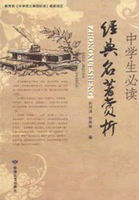Just then Massin-Levrault, junior, the clerk of the court, joined his wife, bringing with him Madame Cremiere, the wife of the tax-collector of Nemours. This man, one of the hardest natures of the little town, had the physical characteristics of a Tartar: eyes small and round as sloes beneath a retreating brow, crimped hair, an oily skin, huge ears without any rim, a mouth almost without lips, and a scanty beard. He spoke like a man who was losing his voice. To exhibit him thoroughly it is enough to say that he employed his wife and eldest daughter to serve his legal notices.
Madame Cremiere was a stout woman, with a fair complexion injured by red blotches, always too tightly laced, intimate with Madame Dionis, and supposed to be educated because she read novels. Full of pretensions to wit and elegance, she was awaiting her uncle's money to "take a certain stand," decorate her salon, and receive the bourgeoisie. At present her husband denied her Carcel lamps, lithographs, and all the other trifles the notary's wife possessed.
She was excessively afraid of Goupil, who caught up and retailed her "slapsus-linquies" as she called them. One day Madame Dionis chanced to ask what "Eau" she thought best for the teeth.
"Try opium," she replied.
Nearly all the collateral heirs of old Doctor Minoret were now assembled in the square; the importance of the event which brought them was so generally felt that even groups of peasants, armed with their scarlet umbrellas and dressed in those brilliant colors which make them so picturesque on Sundays and fete-days, stood by, with their eyes fixed on the frightened heirs. In all little towns which are midway between large villages and cities those who do not go to mass stand about in the square or market-place. Business is talked over. In Nemours the hour of church service was a weekly exchange, to which the owners of property scattered over a radius of some miles resorted.
"Well, how would you have prevented it?" said the post master to Goupil in reply to his remark.
"I should have made myself as important to him as the air he breathes.
But from the very first you failed to get hold of him. The inheritance of a rich uncle should be watched as carefully as a pretty woman--for want of proper care they'll both escape you. If Madame Dionis were here she could tell you how true that comparison is."
"But Monsieur Bongrand has just told me there is nothing to worry about," said Massin.
"Oh! there are plenty of ways of saying that!" cried Goupil, laughing. "I would like to have heard your sly justice of the peace say it. If there is nothing to be done, if he, being intimate with your uncle, knows that all is lost, the proper thing for him to say to you is, 'Don't be worried.'"
As Goupil spoke, a satirical smile overspread his face, and gave such meaning to his words that the other heirs began to feel that Massin had let Bongrand deceive him. The tax-collector, a fat little man, as insignificant as a tax-collector should be, and as much of a cipher as a clever woman could wish, hereupon annihilated his co-heir, Massin, with the words:--"Didn't I tell you so?"
Tricky people always attribute trickiness to others. Massin therefore looked askance at Monsieur Bongrand, the justice of the peace, who was at that moment talking near the door of the church with the Marquis du Rouvre, a former client.
"If I were sure of it!" he said.
"You could neutralize the protection he is now giving to the Marquis du Rouvre, who is threatened with arrest. Don't you see how Bongrand is sprinkling him with advice?" said Goupil, slipping an idea of retaliation into Massin's mind. "But you had better go easy with your chief; he's a clever old fellow; he might use his influence with your uncle and persuade him not to leave everything to the church."
"Pooh! we sha'n't die of it," said Minoret-Levrault, opening his enormous snuff-box.
"You won't live of it, either," said Goupil, making the two women tremble. More quick-witted than their husbands, they saw the privations this loss of inheritance (so long counted on for many comforts) would be to them. "However," added Goupil, "we'll drown this little grief in floods of champagne in honor of Desire!--sha'n't we, old fellow?" he cried, tapping the stomach of the giant, and inviting himself to the feast for fear he should be left out.















